Pears are usually light green, brown, yellow, red-yellow, but the most common is the yellow-skinned pear. According to traditional medicine, pears are cool, slightly sour, and have the effect of clearing heat, moistening the lungs, reducing phlegm, and reducing coughs. Eating pears helps moisten the lungs, reduce heat, produce body fluids, nourish the blood, treat hoarseness, laxative, treat boils, and sober up with quite high efficiency.
According to nutritionists, on average 100g of pears provide many beneficial nutrients, including: calcium, fiber, potassium, protein, phosphorus, and other essential vitamins such as A, B, C. Every 100g of pears will contain 0.5mg of iron, 86.5g of water, 0.2g of protein, 0.1g of fat, 11g of carbohydrates, 14mg of calcium, 13mg of phosphorus, 1.6g of fiber, 1mg of folic acid, vitamins P, C and beta carotene, 0.2g of vitamin PP,...
Pears can be processed into many unique delicious dishes such as eating raw, making juice, making salad, baking pears, pear sandwiches, stewing for medicine...

Illustration
Surprising health benefits of pears
Helps improve intestinal health
Pears are a rich source of both soluble and insoluble fiber, which helps maintain bowel regularity and promotes digestive health.
Helps fight inflammation effectively
Pears are a rich source of flavonoid antioxidants, which help fight inflammation and may reduce the risk of heart disease and diabetes. In addition, the vitamins C and K contained in pears also have anti-inflammatory properties.
Helps reduce the risk of diabetes
Additionally, the fiber in pears slows down digestion, giving your body more time to break down and absorb carbs. This can also help regulate blood sugar levels, potentially helping to prevent and control diabetes.
Improve cardiovascular health
The procyanidin antioxidant found in pears can reduce the stiffness of heart tissue, lower LDL (bad) cholesterol and increase HDL (good) cholesterol. What's more, pear skin contains an important antioxidant called quercetin, which is thought to benefit heart health by reducing inflammation and lowering heart disease risk factors like high blood pressure and cholesterol levels.
Helps support weight loss
Pears are low in calories, high in water and fiber, which helps us stay full longer, and are a great support for effective weight loss.
Anti-cancer effects
The anthocyanins and cinnamic acids found in pears have been shown to have anti-cancer properties. Some studies have shown that a diet rich in fruits, including pears, may protect against certain cancers, including lung, stomach, and bladder cancers.
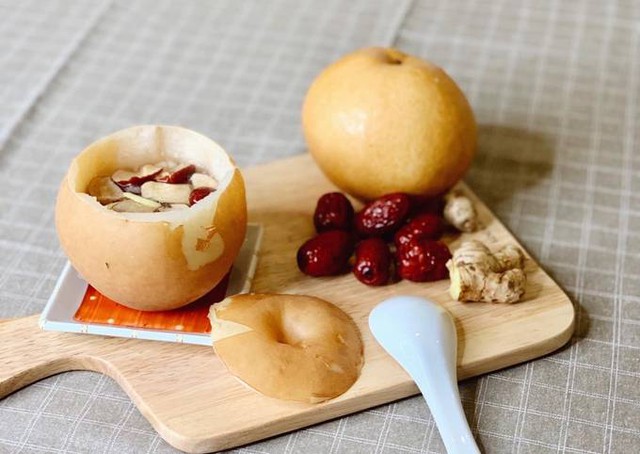
Illustration
6 simple but effective remedies from pears
Treat dry cough: Take a few pears, wash them, remove the seeds, puree them, add rock sugar and steam them to eat gradually.
Treating cough with phlegm : Take about 1.5 kg of pears, wash them, remove the seeds, simmer until they become a paste, add a little honey and mix well. Wait for the mixture to cool, pour it into a glass jar or ceramic pot for later use. Each time you eat, take 2 to 3 teaspoons, mix with boiling water, wait until it is warm and drink.
Cure persistent cough : Take 20 pears, 0.2g fresh forest, 1kg jujube, 1.5kg lotus root. Chop all and simmer to get concentrated juice. Then add 0.25kg rock sugar, a little honey and stir well to form a thick mixture. Wait for it to cool, pour this mixture into a glass jar or ceramic pot to save for later use.
Help sober up : Use a fresh pear, peel, wash, cut into pieces and feed it to the drunk person to sober up.
For children with poor appetite : Take 3 pears, wash them, cut them into pieces. Add 3 liters of water, simmer until only 1 liter remains, filter out the residue, add rice and cook porridge for the children to eat.
Burn treatment: Use a clean knife to cut thin slices of fresh pear and apply to the burn to help reduce pain and prevent skin ulcers.
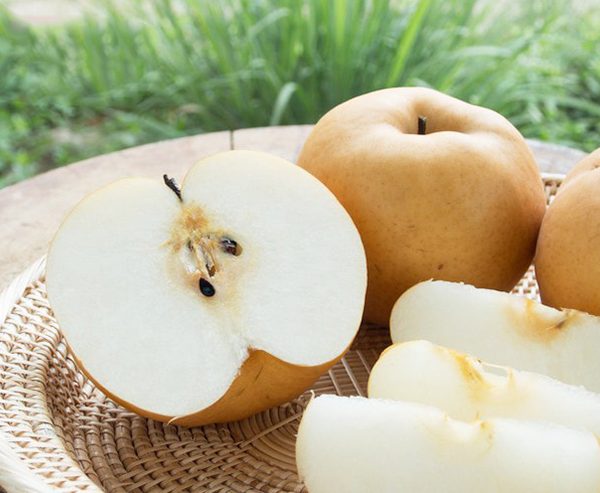
Illustration
Who should not eat pears?
Although pears are rich in nutrients, you should not eat pears if your body shows signs of: cold, chills, indigestion, cold stomach... Because pears are cold, eating pears in these cases will make the symptoms of the disease worse.
In addition, postpartum women, people with weak spleen and stomach, children under 6 months old, and people with skin injuries are not suitable to eat pears because it will affect the spleen and stomach.
Source: https://giadinh.suckhoedoisong.vn/loai-qua-an-song-hay-nau-chin-deu-ngon-ngot-nguoi-benh-than-benh-tieu-duong-nen-an-de-keo-dai-tuoi-tho-172240926133411515.htm


![[Photo] Ho Chi Minh City holds funeral for former President Tran Duc Luong](https://vphoto.vietnam.vn/thumb/1200x675/vietnam/resource/IMAGE/2025/5/24/9c1858ebd3d04170b6cef2e6bcb2019e)

![[Photo] Party and State leaders visit former President Tran Duc Luong](https://vphoto.vietnam.vn/thumb/1200x675/vietnam/resource/IMAGE/2025/5/24/960db9b19102400e8df68d5a6caadcf6)





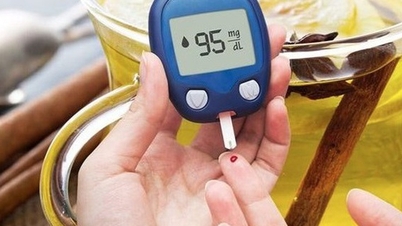




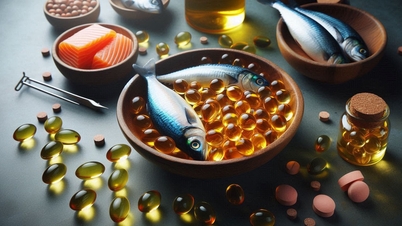
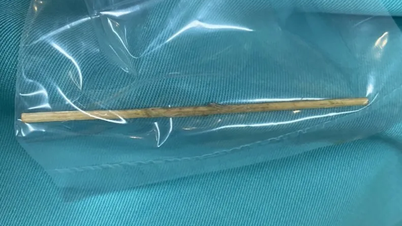



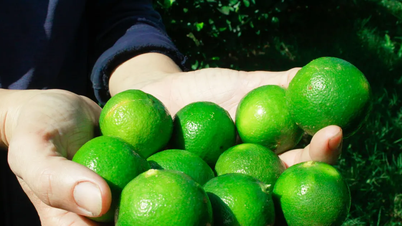


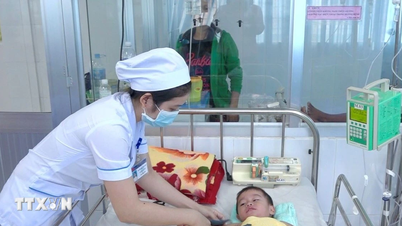







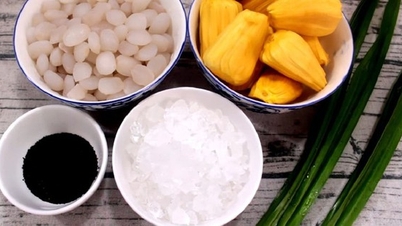

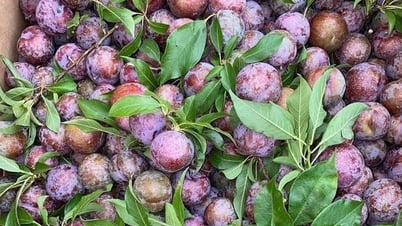




































































Comment (0)